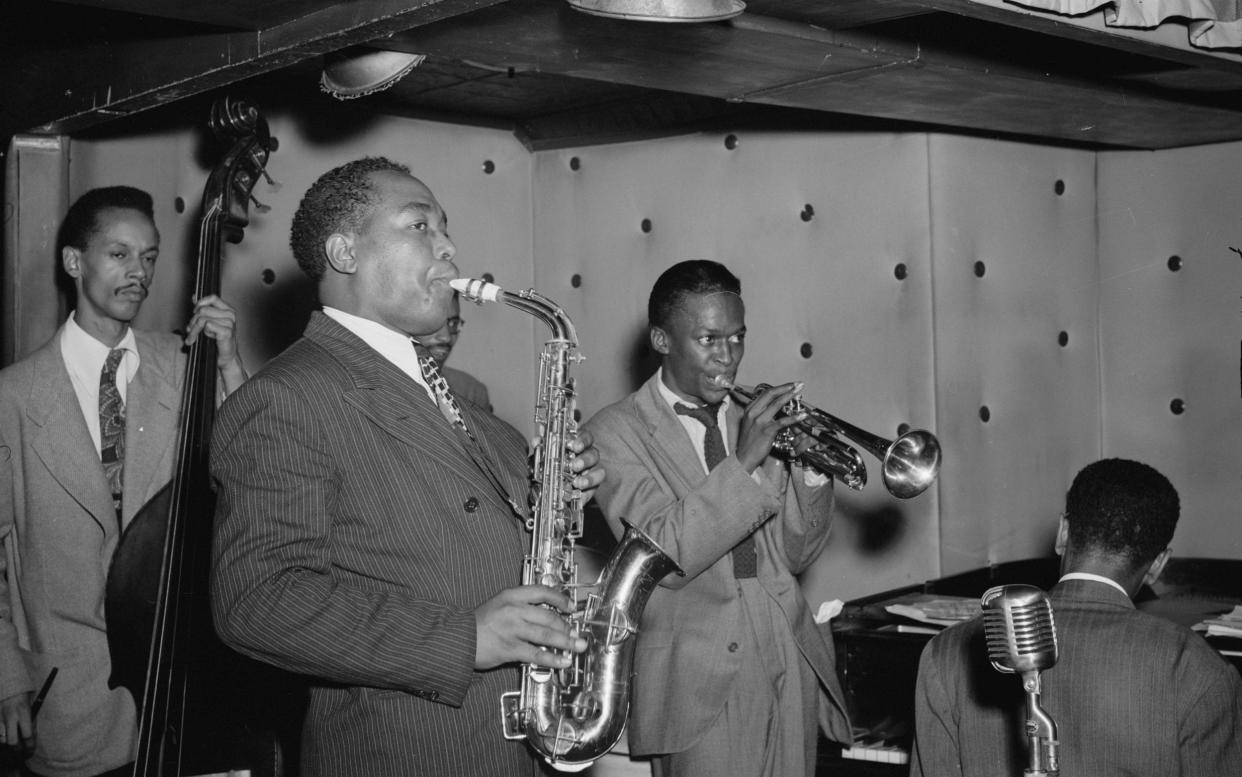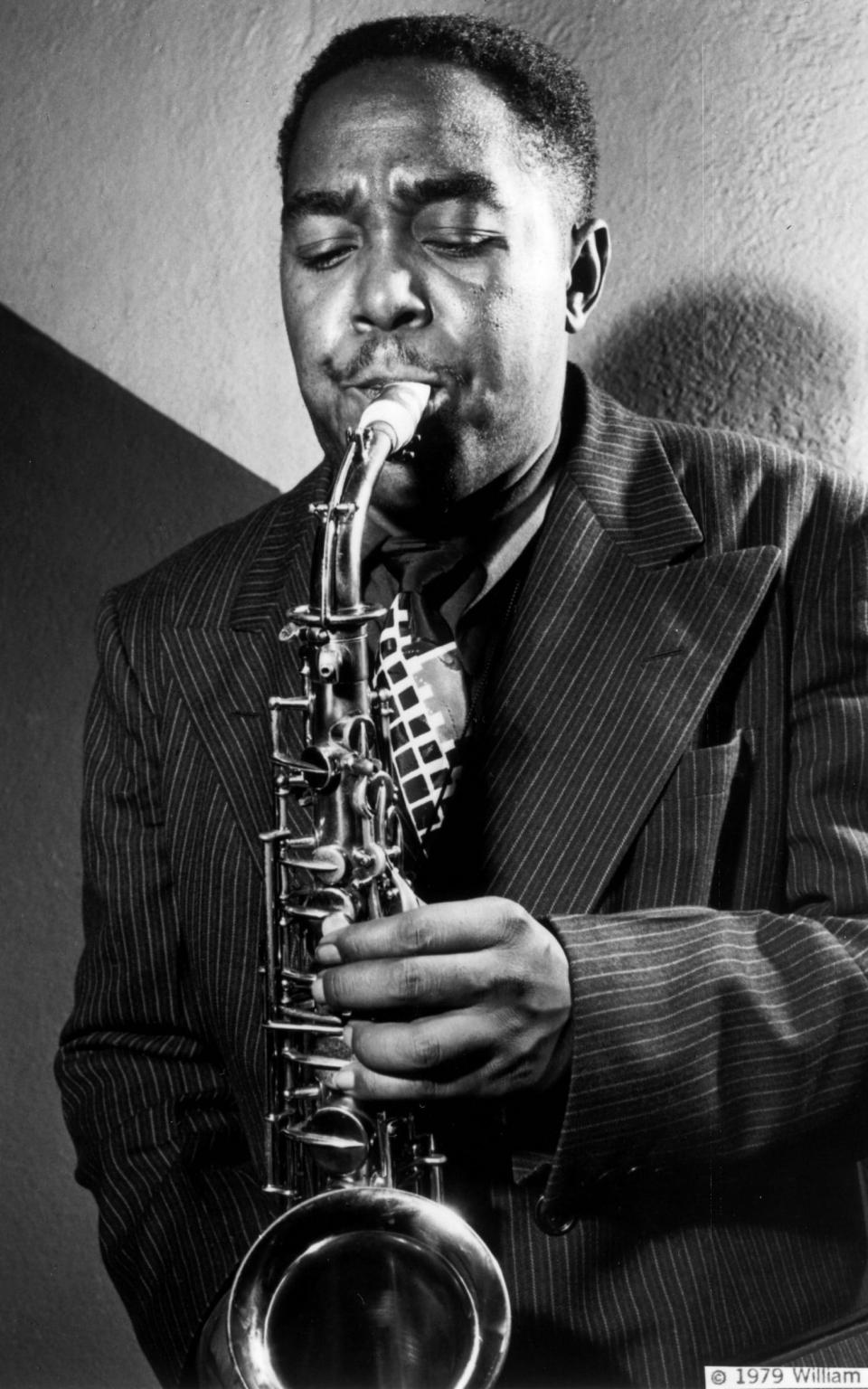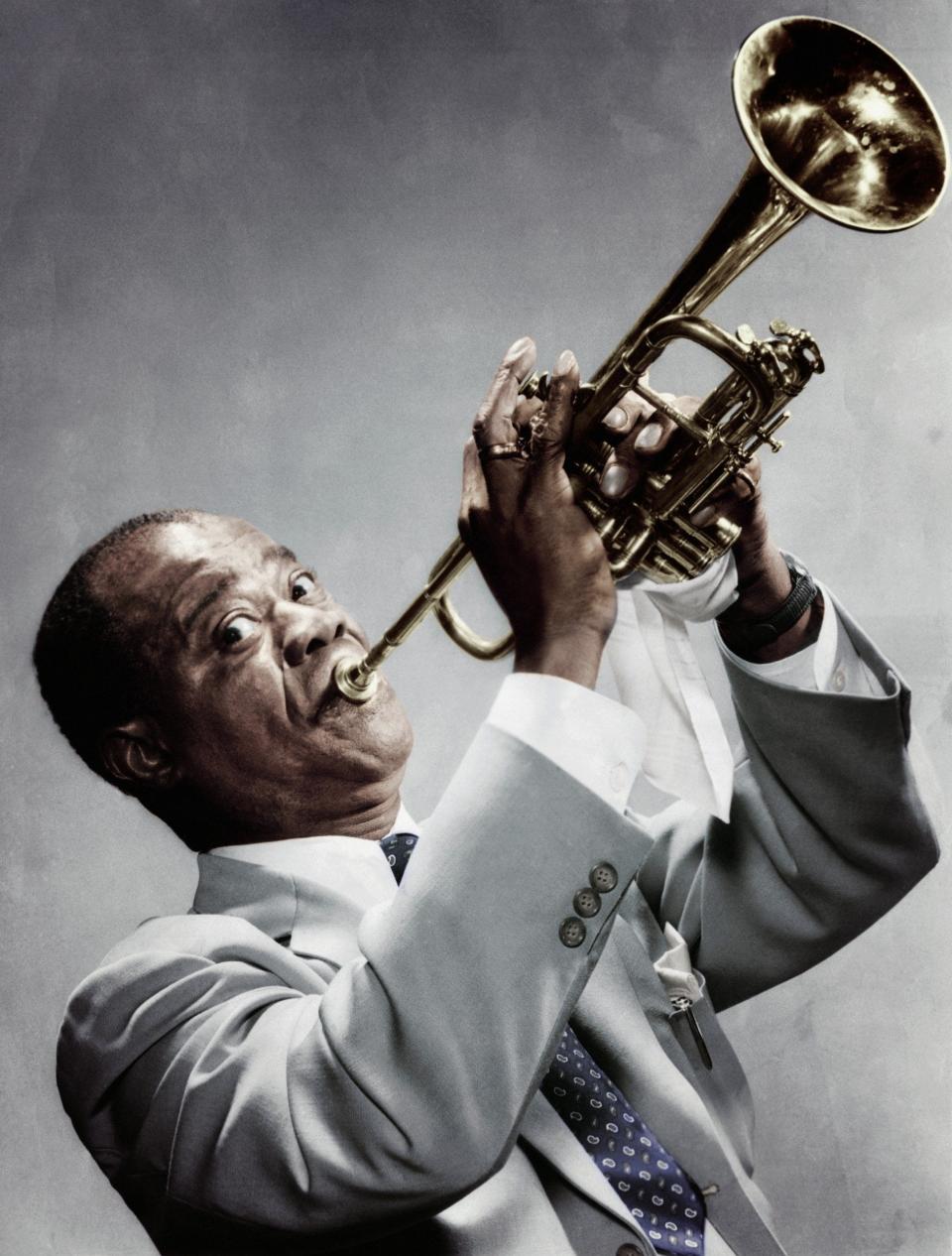Charlie 'Bird' Parker at 100: read Philip Larkin's reviews of his 'wild, bubbling' jazz

Last weekend marked the 100th anniversary of Charlie "Bird" Parker's birth. Arguably the most influential jazz musician of his age, Parker's reputation grew in the years following his tragically early death in 1955, as posthumous releases of his music were championed by reviewers – including the poet Philip Larkin, for was for many years The Telegraph's jazz critic.
"The four-word history of jazz is: 'Louis Armstrong: Charlie Parker'," Larkin wrote in The Telegraph in 1963. "Armstrong who integrated and enhanced a great racial tradition, Parker the prism through which it broke up into an infinity of subtler musical components."
Though Larkin's own tastes leant towards more traditional players, he admired Parker's radical innovations. The comparisons he draws between "Bird" and less experimental musicians – Sidney Bechet, Louis Armstrong – show each of them in a new light, with the poet's usual concision and sharp turns of phrase.
Here, republished from the Telegraph archives, are some of the highlights from Larkin's reviews:
Bird & Bechet
Not long ago, a well-known writer tried to get the word "great" banned from critical vocabulary, on the grounds that it cannot constitute a meaningful advance on "good". A better reason, in jazz at any rate, would be that it has been too devalued on record sleeves to constitute a meaningful advance on anything. But if we call for instance, Kaminsky, Carter and Teddy Wilson good (and we can hardly do less), what word are we to use to show recognition of that extra inimitable power that practice cannot give?
I ask because records have recently appeared by two players with nothing in common except that they manifestly stood head and shoulders above their contemporaries: Sidney Bechet and Charlie Parker...

When he died, aged, 34, [Parker had] seen jazz re-fashion itself pretty well in his image and heard his own solos coming back at him from a thousand horns. His technique and invention were prodigious, whereas no one would pretend Bechet had any more of either than he needed. Yet both alike on these records display individual authority, unclouded and absolute. This is jazz and this is Bechet (or Parker) playing it...
Listening to Parker, one has the impression of a man who not only could translate his ideas into notes at superhuman speed, but who was simultaneously aware of half a dozen ways of resolving any given musical situation, and could somehow refer to all of them in passing beyond it. In his extended solos in Groovin' High and Confirmation idea succeeds idea so unhesitatingly and at such high pressure that the hearer acquits him of any premeditated desire to astonish. Clearly, his only problem was how to get it out fast enough. First published on June 10, 1961
Parker vs Armstrong
More and more are Charlie Parker and Louis Armstrong mentioned in the same breath as equals. The age in which Armstrong's trumped technique was adapted to every jazz melody instrument has been succeeded by one in which, to quote Lester Young, "everyone's playing Bird".
Yet, ironically enough, it is Armstrong who is still with us, flourishing that endless succession of clean handkerchiefs, while Parker has been dead these seven years.
Both men were innovators, though of very different kinds. Armstrong was an accepter, a central talent into which flowed the many tributaries of jazz: his innovation was a throbbing, personal tone which demanded to be heard alone instead of as part of an ensemble.
It has been said that Armstrong was lucky rather than great, that many an obscure trumpeter who never left the South played as well as he did, that he owes his reputation to good publicity and assiduous self-discipline. This is unfair: it would be truer to say that he was the apotheosis of a host of minor talents, of a tradition that lifted him up like a wave, and which he in turn purified.
Parker was a complete contrast. Born in Kansas City in 1920, he came to maturity just when the initial impulse of the twenties and early thirties had spent itself, and the jazz scene was dominated by the large, white, commercial swing bands. The effect of playing their music six nights a week can be imagined.

Where Armstrong had accepted, Parker rejected. "I kept thinking," he said afterwards, "there's bound to be something else."
This "something else"... was, in a word, complication. Parker found jazz chugging along in 4/4 time in the tonic and dominant, and splintered it into a thousand rhythmic and harmonic pieces. Showers of sixteenths, accented on half- and quarter-beats, exhibited a new harmonic fecundity and an originality of phrasing that had scarcely been hinted at before.
Parker did not "follow" anyone, as Armstrong followed Oliver. He just appeared.
His appearance, and that of his music, stung Armstrong into one of his rare bursts of criticism of fellow-musicians. In 1948 he termed it "that modern malice", complaining that "you got no melody to remember and no beat to dance to," and recently a reference to "that ju-jitsu music" prefaced a reiteration of his latterday creed: "A straight lead is better than any jazz solo you know of."
His concerts show what he means: on favourite slow numbers, Georgia or Blueberry Hill, the deliberate and unadorned simplicity of his playing and singing still grips huge audiences like a vice.
But, of course, Parker gripped audiences too: on Bird Is Free or Charlie Parker In Sweden, both taped in the early fifties, standards such as Cool Blues, Star Eyes and Lester Leaps In are treated with fresh and vivid audacity.
All the same, his music, or what his successors have made of it, remains a minority taste. May 14, 1962
'Wild, bubbling freedom'
It is Parker's solos that carry these records and have caused an alteration in the cause of jazz. Granted that his technique and musical instinct for innovation were unrivalled, what was he like? His talent was indivisible; one cannot say that he would have been better if he had played more simply or with fewer rhythmic eccentricities: these are features of the wild, bubbling freedom that characterises him, and that some say earned him his nickname.
But freedom from what? As one listens to Parker spiralling away "out of this world," as the phrase goes, one can only answer "humanity," and that is a fatal thing for an artist, or an art, to be separated from. Sept 11, 1963

